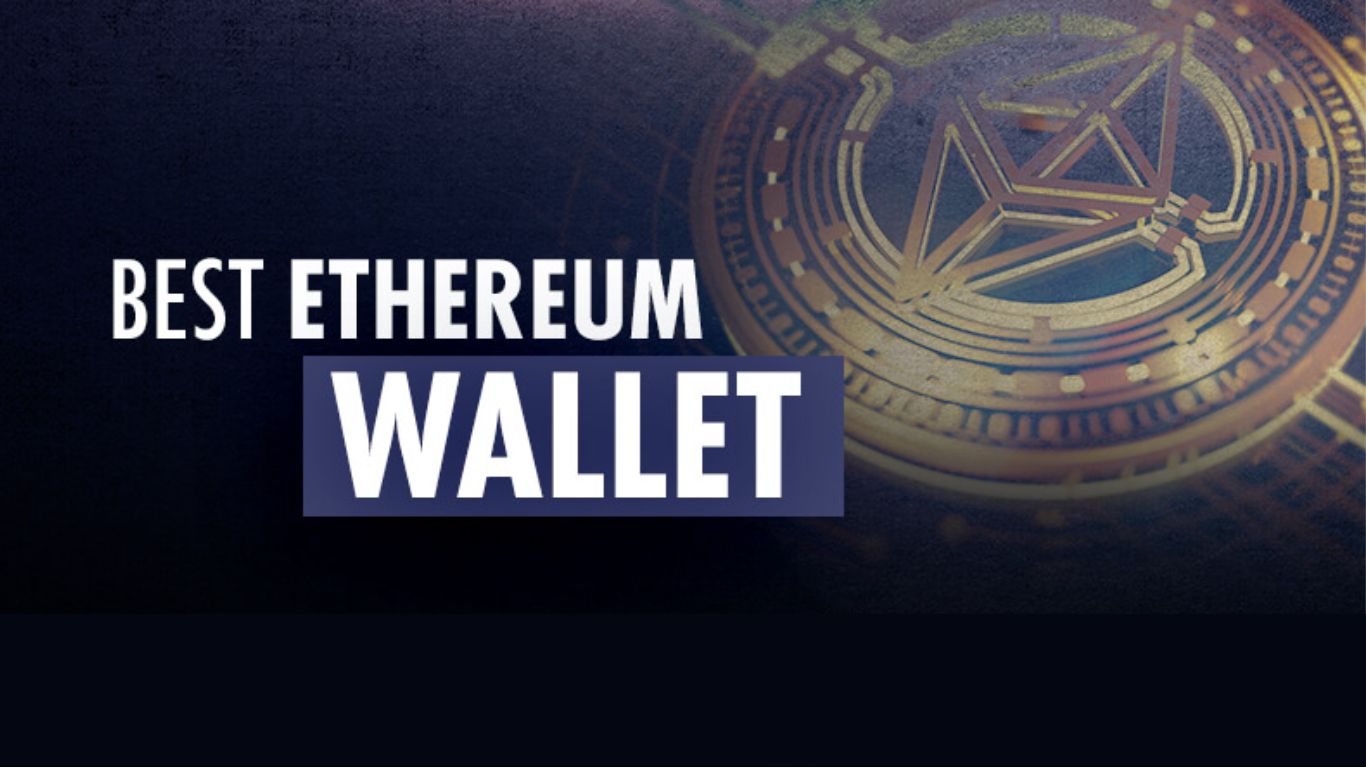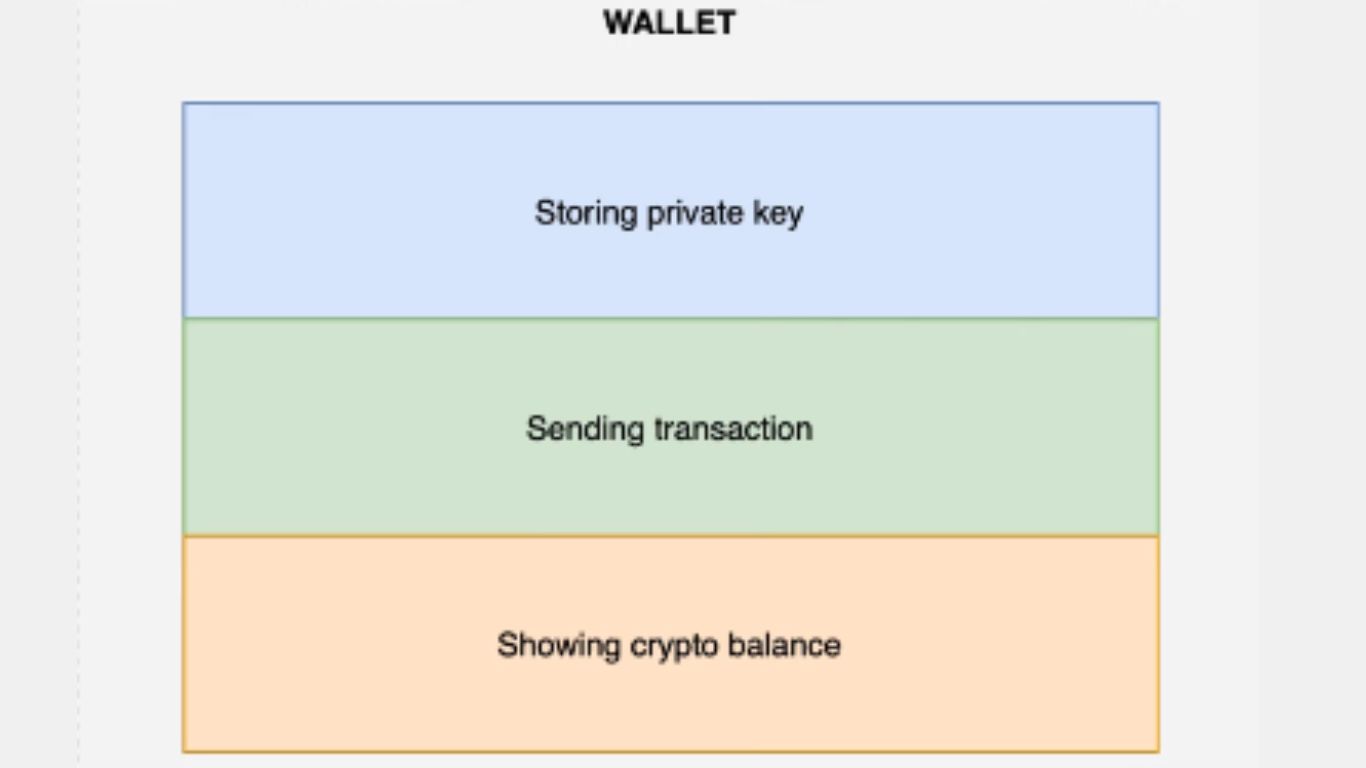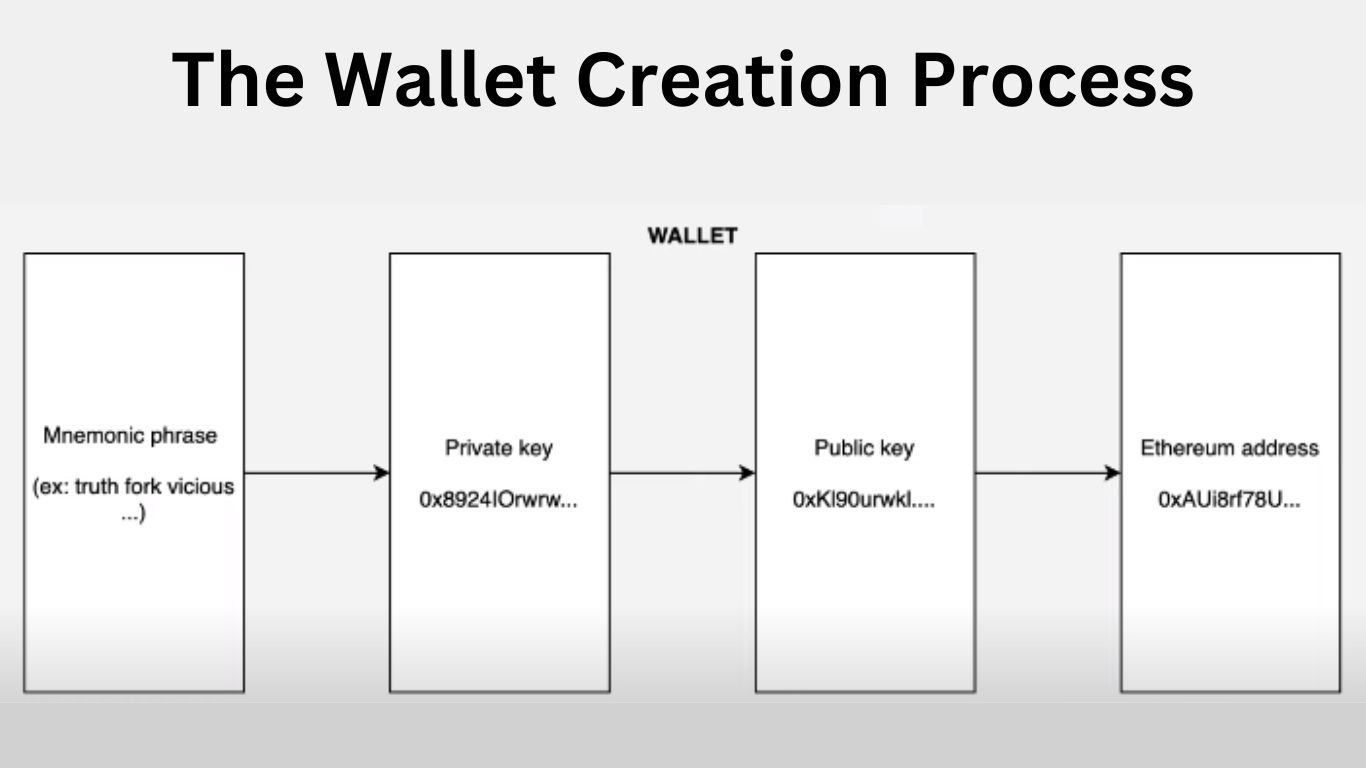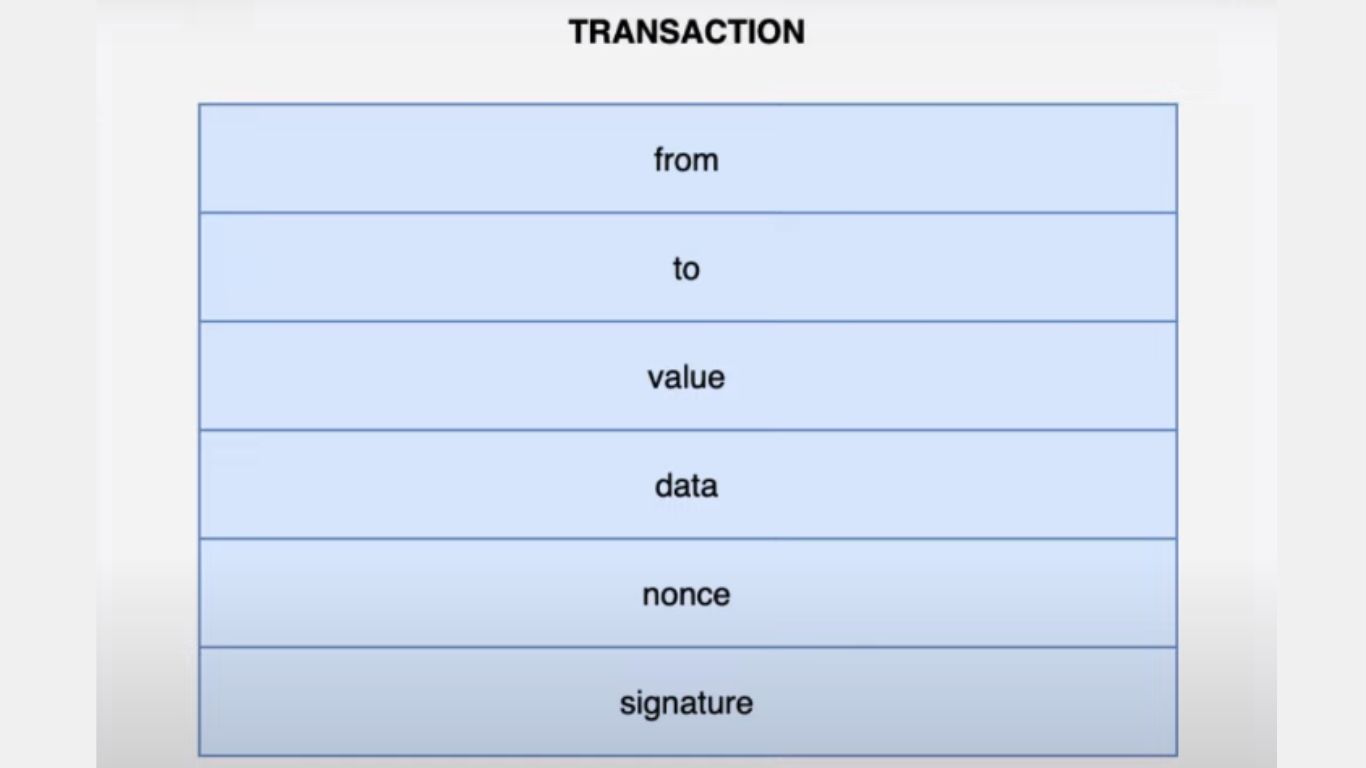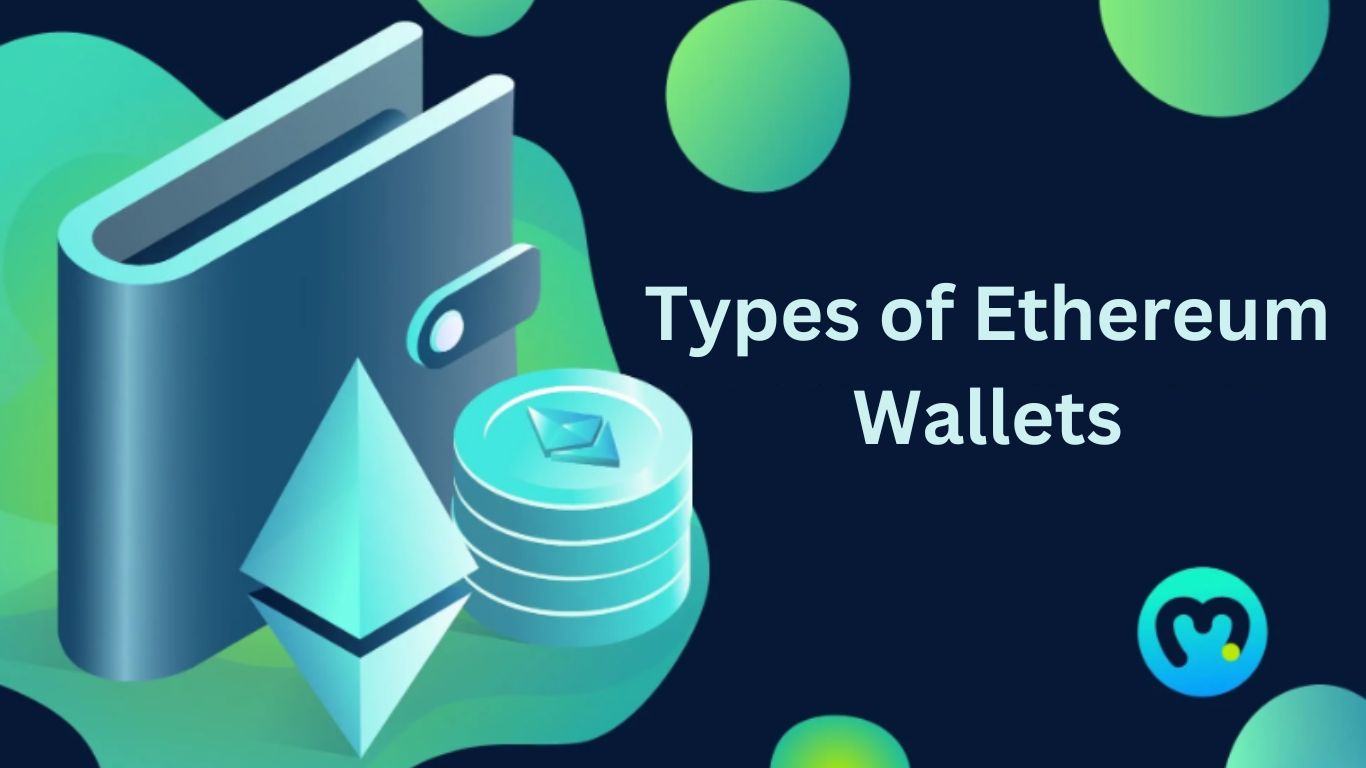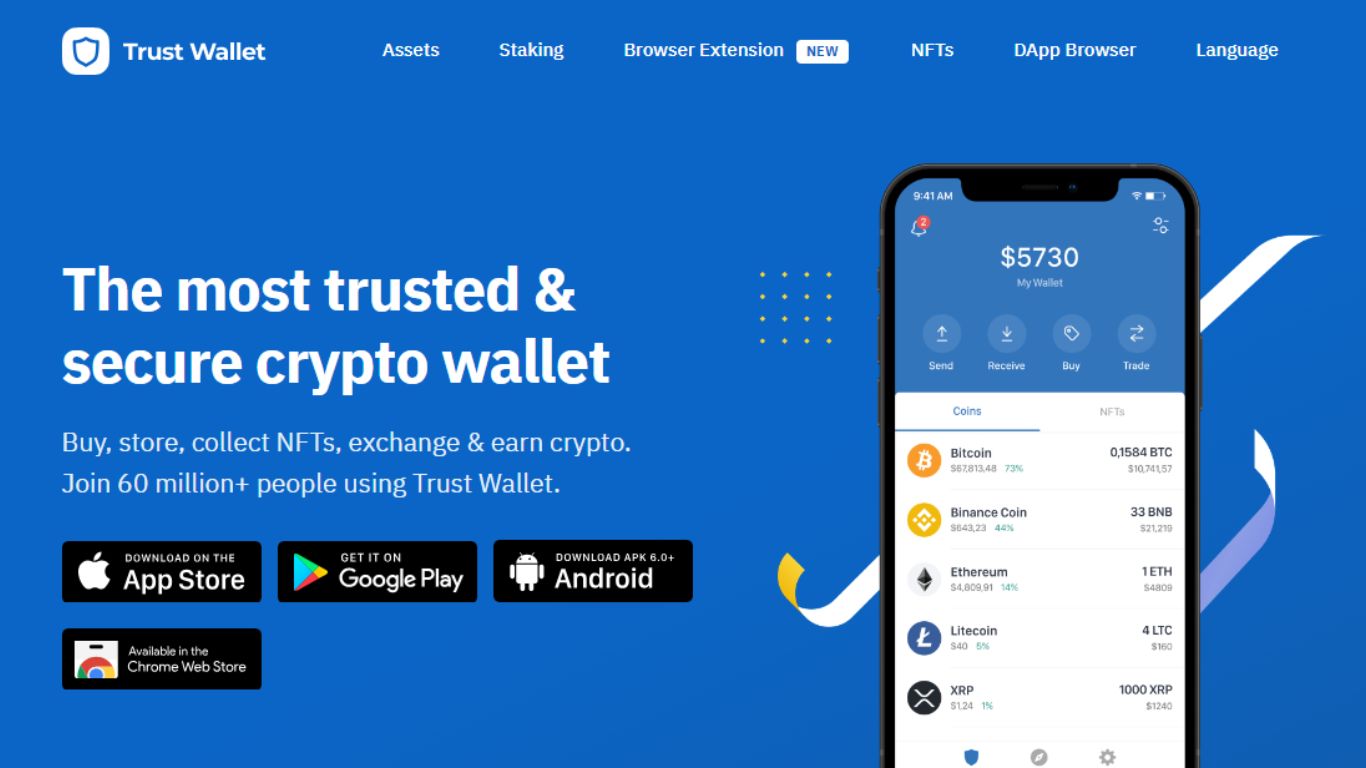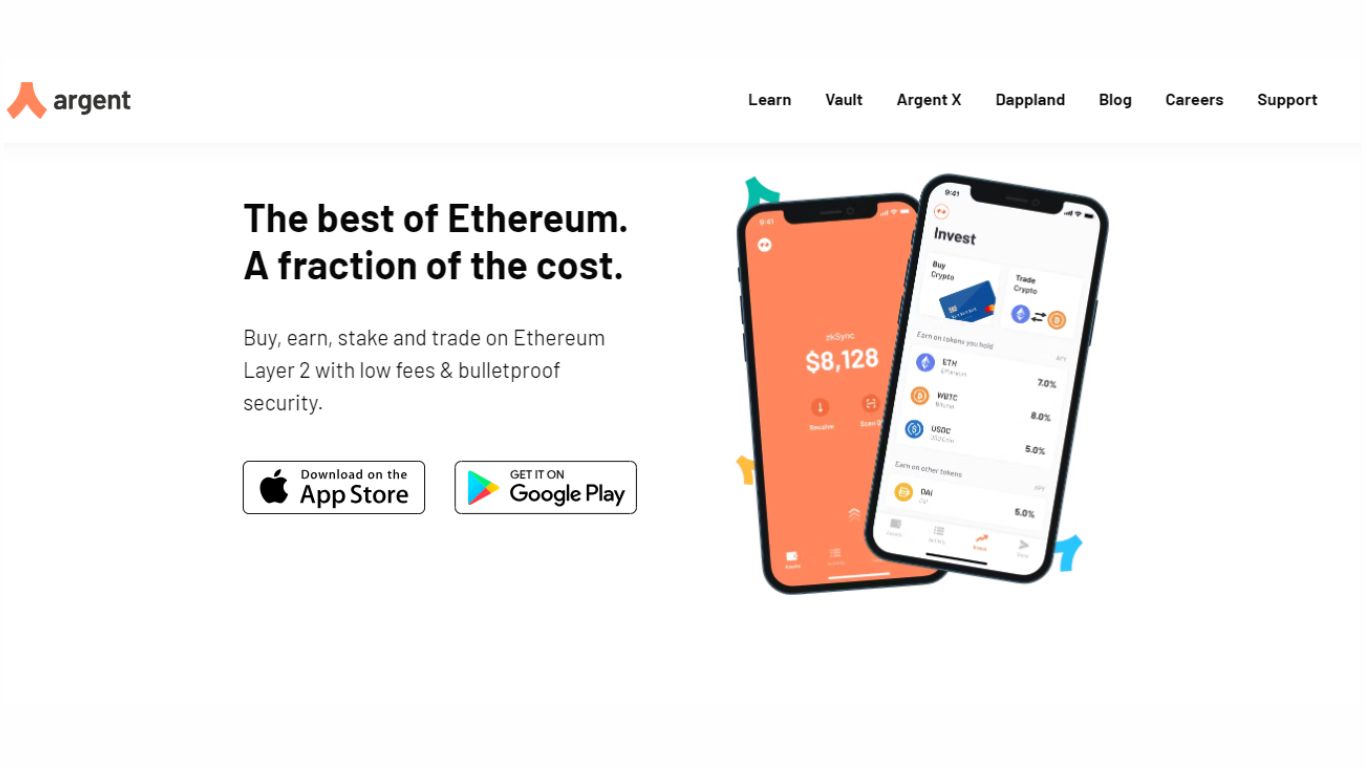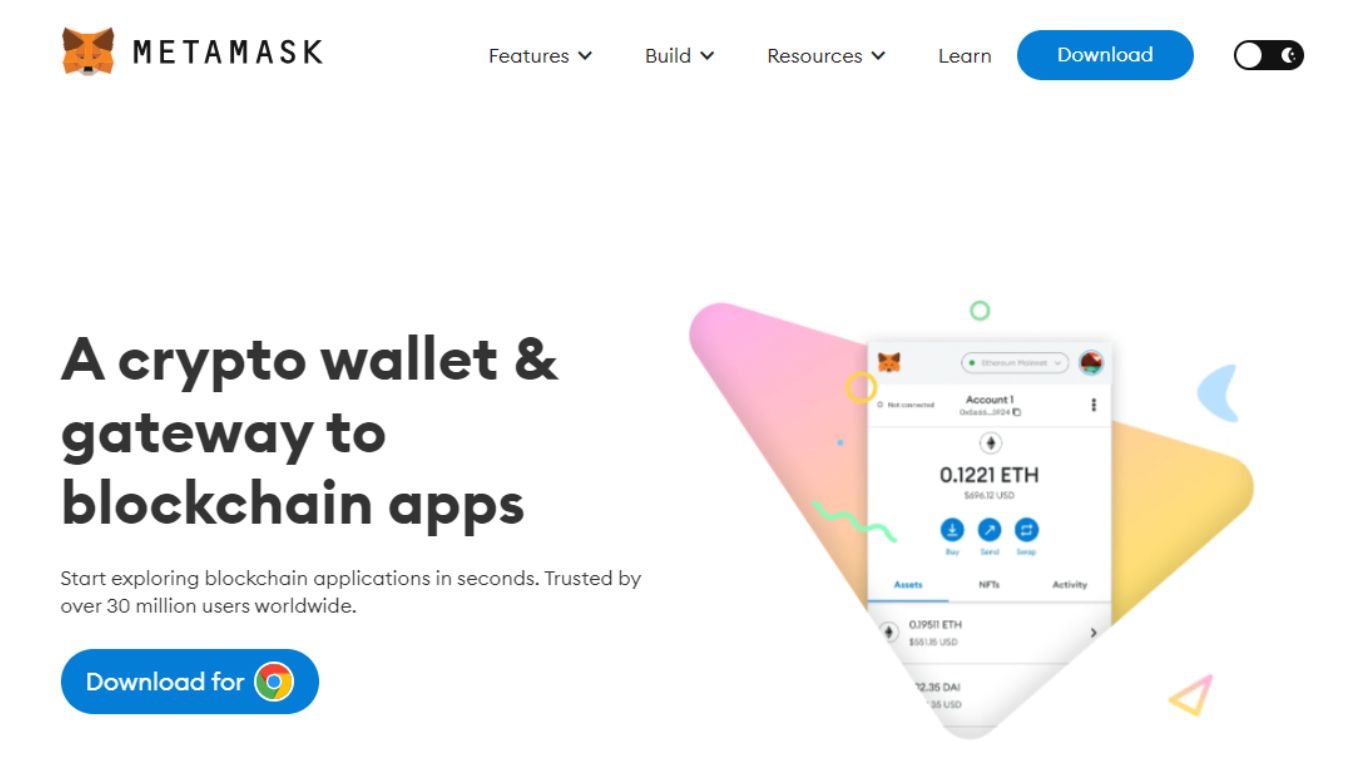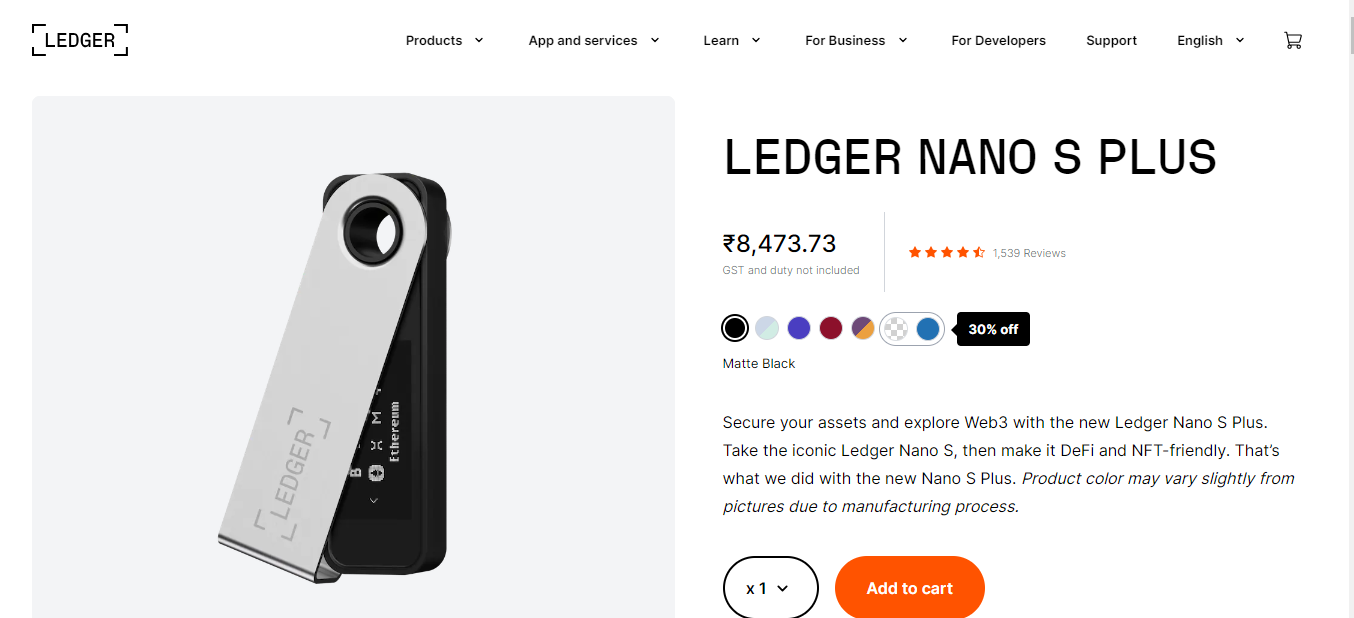Investing in Ethereum and DeFi? You need a wallet. But not just any wallet – the best Ethereum wallet that suits your needs. In this comprehensive guide, we’ll review five Ethereum wallets based on essential criteria: UI/UX, security, integrations, coin support, and DApp browser features. By the end, you’ll know which Ethereum wallet is your perfect match, whether you’re a beginner, trader, or developer.
What’s a Wallet and How Does It Work?
Before diving into wallet reviews, let’s understand the basics. A wallet is a software that allows you to store, send, and interact with Ethereum, including transferring tokens and engaging with smart contracts. Ethereum offers a variety of wallets, and choosing the right one depends on your specific use case. Also, if you want to know how to invest in crypto.
The Wallet Creation Process
When you set up a wallet, it goes through a series of steps:
- Generate a Mnemonic Phrase: The wallet creates a random 12-word sequence called a mnemonic phrase.
- Private Key Generation: This mnemonic phrase generates a private key, akin to a password.
- Private Key Protection: The wallet uses this private key to sign transactions securely. It’s crucial to protect this key and never share it.
- Public Key Generation: The private key generates a public key.
- Ethereum Address Creation: The public key results in your Ethereum address.
With your Ethereum address, you’re ready to use your wallet to send transactions to the Ethereum blockchain.
Transaction Anatomy
Ethereum transactions consist of several components:
- From Address: Your address, the sender.
- To Address: The recipient’s address.
- Value Field: The amount of Ether being transferred (optional).
- Data Field: Optional and used to specify function calls and arguments when interacting with smart contracts.
- Nonce: A unique number for each transaction, ensuring proper transaction order.
- Signature: Your wallet generates this, and it’s used to verify transaction authenticity.
Types of Ethereum Wallets
- Centralized Exchange Wallets: These are the simplest wallets and are often provided by exchanges like Coinbase or Binance. They manage your wallet for you, making it easy to use but less secure.
- Trust Wallet: A mobile wallet available on iOS and Android, Trust Wallet offers excellent user experience and security. It supports various tokens and has a DApp browser for DeFi access.
- Argent: Also a mobile wallet for iOS and Android, Argent focuses on Ethereum and offers strong security features, including smart contract wallets. It integrates with DeFi and DEXs.
- MetaMask: A popular browser extension and mobile app wallet for Chrome, Firefox, Brave, Edge, iOS, and Android. While its UI can be challenging for beginners, it provides excellent security and extensive token support. MetaMask also boasts a DApp browser.
- Ledger Nano S: A physical hardware wallet, Ledger Nano S offers top-notch security. It’s not as user-friendly but keeps your private key isolated. It integrates with MetaMask for added functionality.
Wallet Recommendations
Centralized Exchange Wallets
- UI/UX: Generally user-friendly.
- Security: Risky due to centralized storage.
- Integrations: Limited but growing DeFi support.
- Coin Support: Restricted selection.
- DApp Browser: Not available.
Trust Wallet
- UI/UX: Excellent mobile experience.
- Security: Strong encryption on-device.
- Integrations: DEX support via Trust Wallet and WalletConnect.
- Coin Support: Extensive, with custom token addition.
- DApp Browser: Available.
Argent
- UI/UX: Exceptional mobile interface.
- Security: Smart contract wallets for added security.
- Integrations: Extensive DeFi and DEX integration.
- Coin Support: Comprehensive, including NFTs.
- DApp Browser: Not native, but WalletConnect support.
MetaMask
- UI/UX: Improving but can be complex.
- Security: Private keys never leave the device.
- Integrations: DEX support (primarily on browser extension).
- Coin Support: Good, with custom token addition.
- DApp Browser: Available, making it a developer favorite.
Ledger Nano S
- UI/UX: Challenging for beginners.
- Security: Exceptional with isolated private keys.
- Integrations: Limited native integrations, enhanced with MetaMask.
- Coin Support: Extensive via MetaMask.
- DApp Browser: Not native, but usable with MetaMask.
Conclusion
Choosing the best Ethereum wallet depends on your expertise and needs. Start with a centralized exchange wallet if you’re new, but be cautious about security. Trust Wallet and Argent offer excellent user experiences and DeFi integrations. MetaMask is a developer staple with strong security, while Ledger Nano S provides top-tier security for those willing to navigate a steeper learning curve.
Frequently Asked Questions (FAQs)
What is an Ethereum wallet, and why do I need one?
An Ethereum wallet is a software or hardware tool that allows you to store, send, and receive Ether (ETH) and other Ethereum-based tokens. You need a wallet to manage your Ethereum assets, interact with smart contracts, and participate in decentralized applications (DApps) on the Ethereum blockchain.
What’s the difference between a hardware wallet and a software wallet?
A hardware wallet (e.g., Ledger Nano S) is a physical device that stores your private keys offline, offering the highest level of security. In contrast, a software wallet (e.g., MetaMask) is a digital application installed on your computer or mobile device, providing convenience but with varying degrees of security.
How can I secure my Ethereum wallet?
To secure your Ethereum wallet, follow these best practices:
- Use a hardware wallet for long-term storage.
- Create strong, unique passwords.
- Enable two-factor authentication (2FA) when available.
- Keep your private keys and recovery phrases offline and in a secure location.
- Be cautious of phishing attempts and only download wallet software from trusted sources.
What happens if I lose access to my Ethereum wallet?
If you lose access to your Ethereum wallet and don’t have a backup of your private key or recovery phrase, you may permanently lose access to your funds. It’s crucial to store this information securely and consider social recovery mechanisms offered by some wallets, like Argent.
Are there fees associated with using Ethereum wallets?
Yes, there are fees associated with using Ethereum wallets, primarily in the form of gas fees. Gas fees cover the computational resources needed to execute transactions and smart contracts on the Ethereum network. The fee amount varies depending on network congestion and the complexity of the operation. Wallets may also charge fees for specific features or services, so it’s essential to review the fee structure of your chosen wallet.

